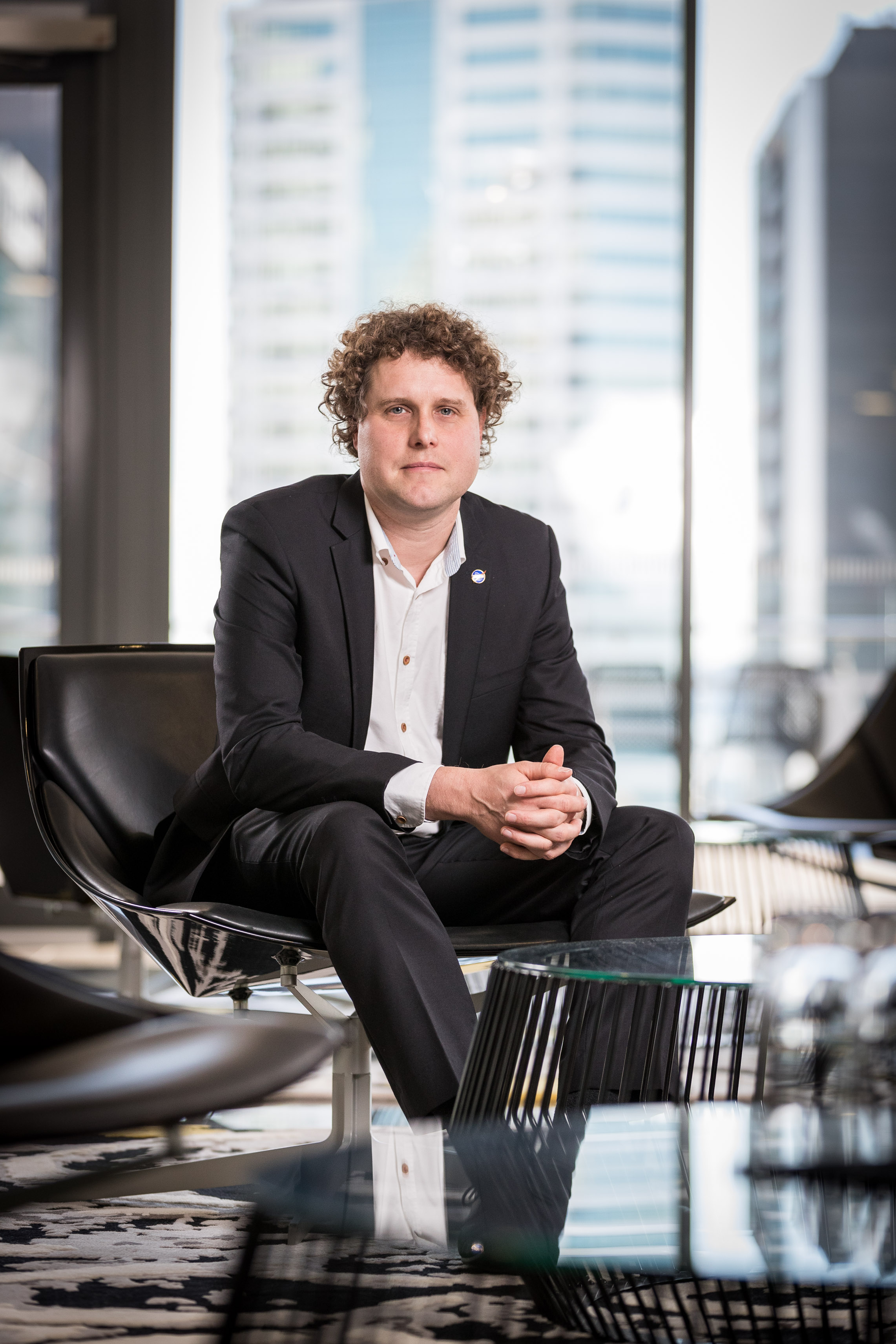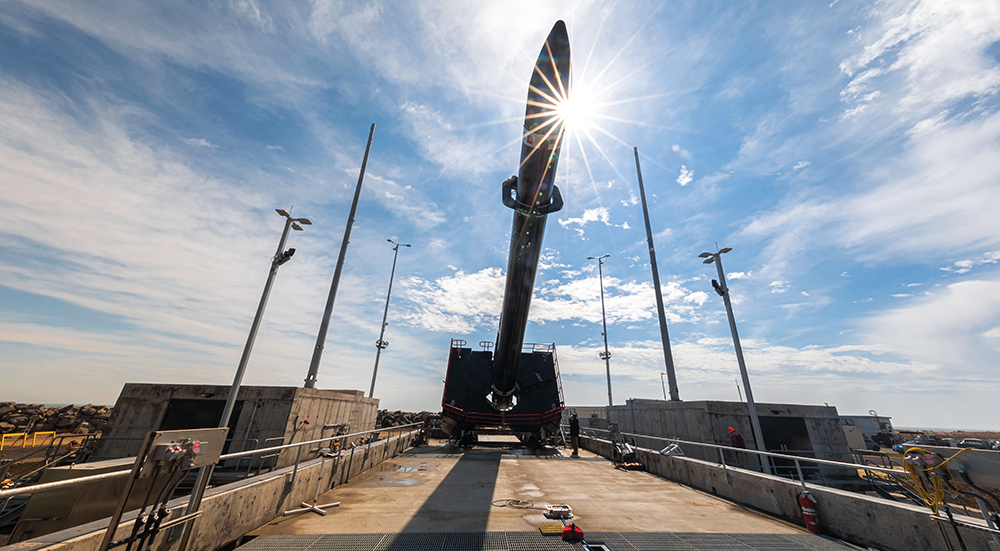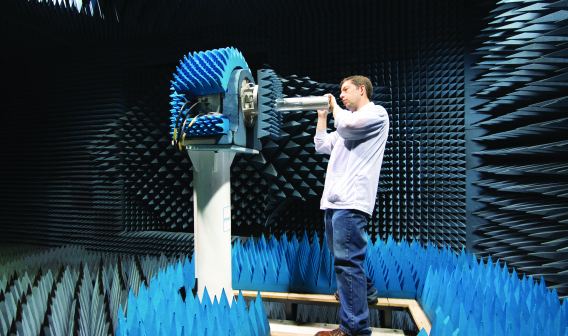Beck: We’ve built a small launch vehicle for delivering small satellites. Our satellites have shrunk drastically in size over the last decade, and it doesn’t sit well when you have a very, very large rocket and a very small satellite. So it’s really about providing a dedicated ride for small spacecraft to get onto orbit in a timely manner, and it’s particularly critical for government customers who need absolute assured access to space in a rapid way.
The thing that’s really unique about the Virginia launch site at Wallops is that the whole launch site, including all the operations, has been specifically designed for rapid on-call-up launch demand. It’s a unique facility and it brings to the country a whole new national capability that doesn’t exist.
El Koubi: Can you talk a little bit about specifically what convinced you to locate Rocket Lab’s U.S. facility at Wallops Island?
Beck: We actually ran a national competing process and we looked at all the potential launch sites around the U.S. Really, the super-strong support from the Commonwealth of Virginia, led by [Secretary of Transportation] Shannon Valentine, was one of the key elements. Also, the incredible welcome that we got there, and the capabilities of the team there at Virginia Space led by Dale Nash. We had to build a launch site in under a year and, in order to do that, you require massive team effort.
It was just a huge team effort by a lot of people, and both the state of Virginia and the Virginia Space Authority had a strong record of building and maintaining launch pads really, really quickly.
El Koubi: Can you talk a little bit more about the relationship with Virginia Space? How does that partnership work?
Beck: It’s a very, very close partnership. Virginia Space has built a real capability with technicians and experienced engineers in developing and operating our launch pads, although most people see a launch pad and think that’s all there is to a rocket facility. There’s another facility that we’ve built just off the island, which is a vehicle processing facility with multiple cleanrooms, and it’s highly secure.
There’s just a tremendous wealth of experience, knowledge, and commitment from that team. Rocket Lab is very aggressive in its timelines and the way that we execute technologies, and everybody just really got in behind us to support us to get this capability stood up in record time.
El Koubi: One of the things that Rocket Lab is focused on is the development of a reusable rocket system. Can you talk about that? How close are you to being able to recover rockets after launch?
Beck: We successfully reentered two rockets in a row. We haven’t recovered them, but reentered them into the Earth’s atmosphere, and that’s actually the hardest thing to do. It’s a very complex problem, but we’re making fantastic progress.
El Koubi: Can you tell us about Rocket Lab’s pathfinding mission, supporting NASA’s mission to the moon, to be launched from Virginia?
Beck: Most people think of Rocket Lab as a launch company, and certainly that’s what we’re well known for, but we also build satellites. We recently won a contract to support NASA to deliver one of the first communication relays to assist them in orbit. We begin launching from the pad in Virginia, and then we spend about eight days continually raising the orbit on a very, very complex trajectory. Then finally, we do one big burn and send ourselves on the way to the moon. We’re really, really excited about that mission and being able to build some of the very first elements of the lunar gateway.
El Koubi: You have so many incredible projects underway. What are some of the other technological advances developed at Rocket Lab that you’re most proud of and, similarly, can you talk a bit about the future? What are you most excited about in the coming year?
Beck: Rocket Lab is highly vertically integrated. So we produce about 95% of the entire launch vehicle in-house. With that comes a lot of innovation. The one thing that everybody will see when they stand and look at Electron launch is that it’s black in color, because it’s made completely of carbon fiber from tip to tail. So there are a lot of unique technologies in there. We 3D print our rocket engines. But the thing that excites me most about the future is when you combine a launch vehicle like Electron with the satellite platform that was also built, called Photon, it really lowers the barrier to entry to space.
El Koubi: As we think about the aerospace industry overall, what do you see as the next big advances on the horizon?
Beck: The thing that’s really exciting about the space industry, and the thing that gets me up every morning, is the power it has to affect so many lives down here on Earth. The missions that garner a lot of attention are obviously the manned missions — for good reason. I’m always in the front row cheering those on. But what a lot of people don’t realize is how much they are reliant on space infrastructure that’s in orbit currently, and GPS is a great example. Everybody understands GPS, but there’s no Uber Eats without GPS. No Ubers without GPS, let alone directions, but communications, weather, all of this stuff is coming from space, but it’s all hidden infrastructure.
It’s not like you can walk outside and see some power lines and go, “Yep. That’s where my power’s coming from.” You go outside and there’ll be a little gray dish pointing to the sky, and it’s like, “Well, that’s where my TV comes from,” but it’s less obvious where all of these other services from space that are integrated into our everyday lives are coming from.
The thing that I’m most excited about is when you democratize that market and open it up for commercial enterprise to grow and innovate, then a whole lot of new services and new opportunities start to arrive. The slogan we have here at Rocket Lab is: “We go to space to improve life on Earth.” That’s really what we live by, trying to build infrastructure on orbit that has the ability to affect millions, and tens of millions, if not billions of people around the world every day.
El Koubi: You’ve talked a lot about different parts of the business, but I know you’re also very excited about the spacecraft division of Rocket Lab. Can you talk a bit about what’s going on there?
Beck: This is a relatively new division for us, and we made some acquisitions early in the year, which really put a backbone to the division. So, much like the launch vehicle division, the satellite division also is highly vertically integrated, so we built just about everything in-house there.
The kind of spacecraft that we’re building are really exciting and unique. We’re building spacecraft to go back to the moon, and we’re really excited about that. We also are able to provide spacecraft systems into other people’s platforms as well. So although people think of Rocket Lab as a beautiful black rocket, there are lots of components with the Rocket Lab logo on it sitting in other people’s spacecraft all around the world.







